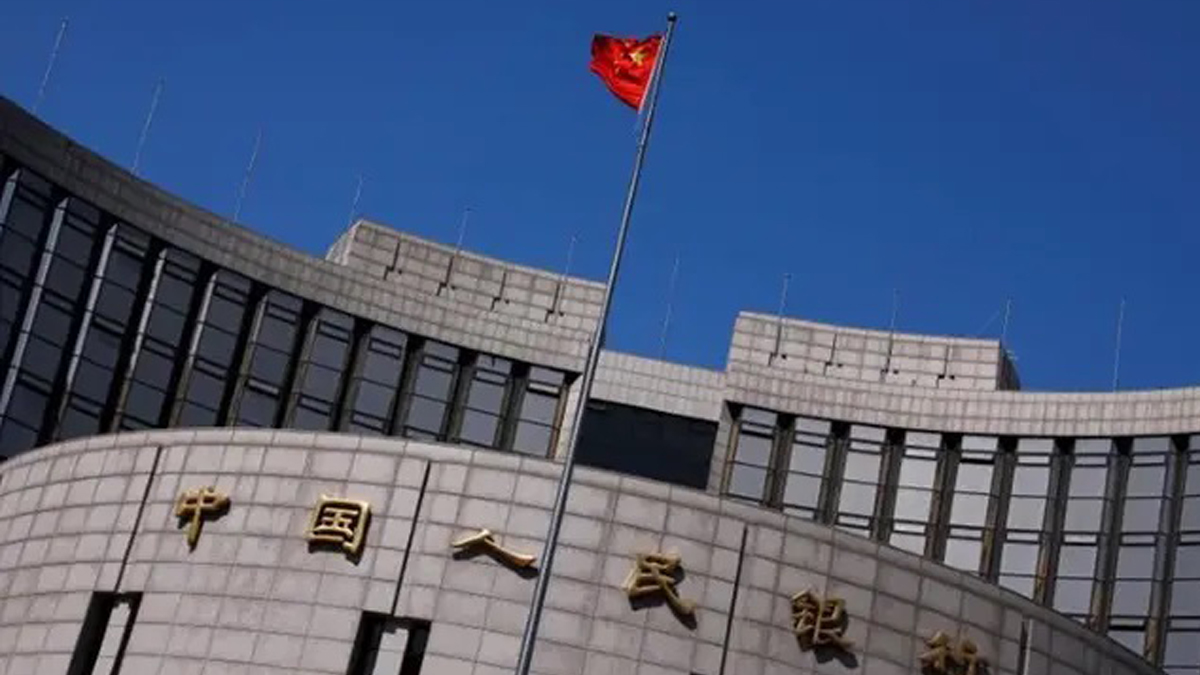
Japan and India Shine as China’s Economic Woes Lead to Investor Confidence Shift in 2023

In the intricate tapestry of the Asian financial landscape, the year 2023 unfolded as a dynamic epoch characterized by a fascinating divergence in investor fortunes. Against the backdrop of Japan’s benchmark index soaring to a 33-year pinnacle, Hong Kong found itself mired in the throes of a disheartening fourth consecutive year of decline, while India emerged as an unexpected torchbearer in the realm of Initial Public Offerings (IPOs). This pronounced dichotomy was predominantly fueled by a palpable disenchantment with China’s post-COVID recovery trajectory.
The resplendent cityscape of Hong Kong, epitomized by its flagship Hang Seng Index (HSI) tracking 80 blue-chip stocks, witnessed a disconcerting descent of 13.8% over the course of the year. This downturn etched a disquieting milestone, constituting the first four-year losing streak for the HSI since its inauguration in 1969. Despite a fleeting surge in early January, spurred by the momentous reopening of Hong Kong’s border with the mainland, the index reached its zenith at 22,688.9 on Jan 27. However, this ephemeral triumph was swiftly eclipsed by the relentless headwinds of interest rate hikes and a lethargic Chinese economy. The intricate dance between Hong Kong’s economic interests, inextricably linked to China, and the pragmatism of its peg to the U.S. dollar, added layers of complexity to the financial narrative.
The ripples of China’s economic slowdown were not confined to Hong Kong; they reverberated across mainland shares as well. The CSI 300, a benchmark index encompassing leading stocks in Shanghai and Shenzhen, bore the brunt with an 11.4% contraction. The chilling effect extended to most Southeast Asian shares, with notable exceptions in Vietnam and Indonesia. Thailand’s benchmark SET index, deeply entwined with the Chinese economy and reliant on Chinese tourists, weathered a substantial dip of 15.2%, emerging as the laggard among major Asian markets.
A discernible trend emerged as mainland investors exhibited a palpable reluctance toward Hong Kong-listed shares. The net purchase of these shares through the connect scheme with the mainland plummeted to 316.96 billion Hong Kong dollars ($40.6 billion), marking the nadir since 2018 when it stood at HK$82.69 billion. Analysts attributed this caution to the pronounced skew in the market towards Chinese financial stocks, particularly spotlighting concerns surrounding potential national services obligations. The specter of adhering to government directives on matters like interest rate adjustments and targeted lending loomed large over the financial services sector, as exemplified by the notable struggles of three of the top four Chinese state-owned banks, accounting for almost 10% of the index’s overall weight.
The headwinds confronting Hong Kong were further compounded by lingering uncertainties over China’s regulatory regime. A stark illustration materialized on Dec. 22, when Beijing’s draft regulations aimed at curbing spending on online games precipitated a staggering $46 billion erosion in Tencent Holdings’ market capitalization. As investors pivoted away from the uncertainties surrounding greater China, their collective gaze shifted towards alternative vistas, notably Japan, India, and the thriving tech hubs of Taiwan and South Korea. These regions witnessed robust double-digit growth in their major indexes throughout 2023, with Japan’s Nikkei 225 leading the charge with an impressive nearly 30% surge.
The renaissance of Japanese shares in 2023 was a confluence of multifaceted factors, prominently including strides in corporate governance. A concerted effort by Japanese regulators over the past decade bore fruit, reflected in Japan’s commendable second-place ranking among 12 Asia-Pacific markets in the Asian Corporate Governance Association’s latest report. Though the overall score of 64.6 out of 100 might be deemed “terrible” by some, it signified a pivotal moment where the impetus for reform and the exuberance of the stock market rally synergistically reinforced each other.
Akin to a financial maestro wielding a baton, investment luminary Warren Buffett added his crescendo to the chorus of optimism. Berkshire Hathaway, under his astute guidance, significantly augmented its holdings in Japan’s five leading trading houses— Itochu, Marubeni, Mitsubishi Corp., Mitsui & Co., and Sumitomo Corp. Rising profits and an assertive wave of share buybacks played a symphonic role in propelling Japanese shares to new heights. The aggregate net profit of the top-tier “prime” companies listed in Tokyo was poised to swell by 12% for the financial year concluding in March 2024. Accompanying this surge, share buybacks in the same period reached an impressive 8.2 trillion yen ($57.5 billion) as of Dec. 26, marking the second-highest annual level.
Amidst this effervescent financial landscape, the average price-to-earnings ratio for these prime Japanese companies stood at 16 times at the end of November, as per data compiled by the Tokyo Stock Exchange. As 2023 drew to a close, the Nikkei 225 found itself a mere 5,451 yen away from its record high of 38,915 yen, set on the last trading day of 1989 when the PE ratio exceeded a staggering 60 times. Notably, BlackRock, a financial juggernaut, reaffirmed its “overweight” position on Japanese equities for the next six to 12 months, citing the transformative impact of corporate reform on market performance.
Beyond the archipelago of Japan, another beacon beckoned investors: India. Positioned not merely as a surrogate for China but as a captivating long-term growth narrative, India seized the attention of discerning investors. BlackRock’s optimism extended to India, viewing it as a compelling destination amid the challenges faced by the Chinese equity market over the preceding 12 to 18 months.
The profound shifts in equity market dynamics reverberated in the realm of Initial Public Offerings. Mumbai emerged as the undisputed global leader in the number of IPOs in 2023, relegating Hong Kong to a subdued sixth place. Akshay Sawhney, co-head of Asia Pacific Equity Capital Markets at Bank of America, underscored the profound impact of the performance gap between Hong Kong and other markets, particularly Japan. He emphasized that such disparities would inevitably influence companies’ choices for listings in the upcoming year. As wealth creation burgeoned in the wake of successful deals in Japan, investors exhibited a heightened inclination to redeploy capital in similar ventures, thereby fostering a virtuous cycle of confidence.
In conclusion, the financial chronicles of 2023 unfolded as a nuanced narrative of divergence, with China’s economic trajectory casting a long shadow over Hong Kong and Southeast Asia, while Japan and India emerged as the phoenixes rising from the financial ashes. The cadence of corporate reforms, rising profits, and strategic investments orchestrated a symphony of optimism in Japan, while India beckoned as a beacon of long-term growth amidst the shifting tides of the Asian financial landscape. As the sun set on 2023, the echoes of these financial dynamics reverberated, leaving investors to ponder the unfolding saga of 2024 with a mix of anticipation and strategic acumen.












Comments